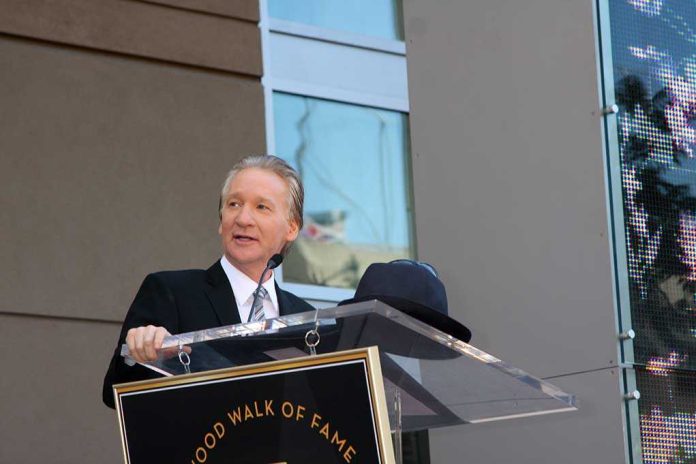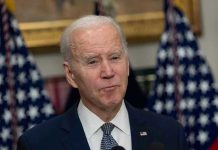
Bill Maher’s latest announcement about his next interview guest is sending shockwaves through liberal media circles, as he openly promises to “make the libs lose their minds” in an era already defined by sharp cultural divides.
Story Snapshot
- Bill Maher signals intent to interview a polarizing figure, fueling intense backlash from progressive audiences.
- Maher’s recent praise of President Trump and ongoing criticism of “woke” culture blur traditional partisan lines.
- Maher’s contrarian approach reflects growing media polarization and challenges to left-wing orthodoxy.
- Speculation swirls around Maher’s motives and the potential impact on HBO, viewers, and political discourse.
Maher Courts Controversy with Next Guest Announcement
In mid-to-late 2025, Bill Maher publicly declared his intent to interview a figure so controversial that, in his own words, it would “make the libs lose their minds.” This move follows a year in which Maher repeatedly crossed political lines, both criticizing and praising figures like Donald Trump. By deliberately provoking his largely liberal audience, Maher reinforces his reputation as a provocateur unafraid to challenge progressive orthodoxy and stir up the already-heightened culture war dynamics of 2025.
Bill Maher Reveals Who He Wants to Interview Next…and the Libs Are Going to Lose Their Minds https://t.co/agoSwdtBW9
— K. B. Eric Riddle (@ridd10473) October 21, 2025
Maher’s strategy has escalated since President Trump’s return to the White House. Earlier in the year, Maher attended a White House dinner hosted by Kid Rock, where he notably praised Trump’s demeanor—an action that drew criticism from progressives and applause from some conservatives. Throughout 2025, Maher’s Real Time broadcasts have featured controversial guests and discussions, amplifying debate and irritation among left-wing commentators while capturing the attention of frustrated Americans weary of ideological conformity.
Liberal Backlash and HBO’s Calculated Gamble
Liberal and progressive audiences have expressed outrage over Maher’s latest plans, fearing that platforming divisive figures may legitimize viewpoints they view as dangerous or regressive. At the same time, Maher’s willingness to challenge his own audience’s beliefs has positioned Real Time as one of the few mainstream outlets willing to push back against groupthink. HBO, the network behind Maher’s show, appears to be walking a fine line—balancing the ratings surge and media buzz against the risk of alienating core subscribers and advertisers sensitive to controversy.
Maher’s editorial independence means he holds the reins on guest selection, but HBO executives closely monitor public reaction, aware that social media outrage and concerted boycotts can pressure networks to reconsider programming decisions. The lack of official confirmation about the next guest has fueled speculation, with names like Trump and other prominent anti-woke commentators circulating in media reports and online forums. The dynamic underscores the power struggle between content creators, corporate interests, and vocal audience segments in shaping the boundaries of public debate.
Pushing the Boundaries of Discourse and Media Polarization
Industry experts and media critics note that Maher’s tactics are part of a broader trend toward contrarian programming in American media. By inviting guests who polarize and provoke, Maher appeals to viewers frustrated by the “cancel culture,” government overreach, and a stifling woke agenda that dominated recent years. While critics accuse Maher of seeking ratings through outrage, supporters argue that honest discourse requires confronting uncomfortable ideas, even at the risk of offending ideological allies.
This approach has implications far beyond HBO’s viewership. In the short term, Maher’s announcement has sparked renewed discussion about free speech, platforming, and the dangers of ideological echo chambers. In the long term, it may set a precedent for other talk shows and news outlets to feature voices outside the mainstream, potentially shifting the Overton window and challenging the dominance of left-leaning narratives in popular culture. For conservative Americans, Maher’s willingness to defy progressive pressure—and the resulting liberal outrage—signals a rare media victory against entrenched orthodoxy.
Despite the backlash, Maher’s strategy reflects a changing media landscape where polarization and controversy drive engagement. As traditional liberal strongholds face internal division and declining influence, voices willing to challenge the status quo—whether from the left, right, or center—are increasingly shaping the national conversation. For viewers tired of government overreach, cultural censorship, and the erosion of American values, Maher’s latest move offers both validation and a warning: the fight over who controls the narrative is far from over.
Sources:
Bill Maher’s most controversial moments so far in 2025
The Seven Deadly Talk Show Sins of Bill Maher

















